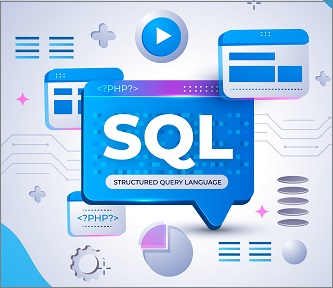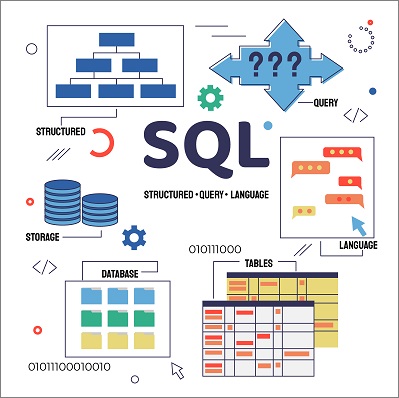SQL Full Form - Structured Query Language
by Devender
0 5673
What is the full form of SQL?
The full form of SQL is Structured Query Language.
It is a special purpose programming language designed for working with the Relational Database Management System. It was originally based on relational algebra and tuple relation calculus.
SQL is a standardized database language supported by all commercial databases. It consists of two languages which are: a data definition language and a data manipulation language.
SQL Full Form - Structured Query Language
It is designed for managing data, retrieving data, storing and manipulating data in the relational databases. All the major Relational Database Management System formats such as MySQL server, MS Access, SQL server, etc. use SQL as the standard data definition language.

SQL History
The SQL came out of a research in 1970s where computer scientists tried building a standardized way to manipulate databases. A number of SQL-based products were launched in the late 1970s and early 1980s.
In 1986, SQL gained massive popularity when ANSI (American National Standards Institute) adopted the first SQL standard. It is one of the most popular database languages in existence. Here is a brief history of SQL:
- 1970 - A relational model for databases was described by Dr. Edgar F. Codd
- 1974 - SQL first appeared
- 1978 - IBM released a product called System/R
- 1986 - IBM released relational database prototype
- 1989 - SQL first version launched
- 1999 - SQL 3 launched with advanced features
- 2006 - SQL new version launched with support for XML Query Language
- 2011 - SQL new version launched with improved support for temporal databases
- SQL command does not need any coding
- It is high-speed coding language
- The SQL program is extremely portable
- Multiple views of the database structure is possible
- The SQL is a very interactive language
- Music Apps:
- Banking and Financial Sector:
- Social Media:
- It has a very complex interface to understand and deal with
- The cost of set up is very high
- Requirement of extra space
- It is platform dependent
- Hidden permissions
SQL Advantages
There are some great advantages that SQL bring to the table:
Modern Day Uses of SQL
SQL finds a number of applications across many different industrial sectors. Here are some sectors where this language finds itself to be more productive:
SQL is used in creation some of the top music apps like Pandora and Spotify. It creates the databases where millions of songs are stored and can be searched easily.
SQL structure provides high level of security which is always a demand in the banking and financial sector. Hence, SQL finds it uses in this sector too.
Social Media apps such as Facebook, Instagram, etc. requires massive data processing and storing which is done by using SQL.
What can SQL do?
1 SQL can create new databases
2 It can create views in a database
3 Can execute queries
4 Can retrieve data
5 Can insert, update and delete records in a database
6 Can create new tables in a database
7 Can set permissions on tables, views and procedures
Limitations of SQL
There are always advantages and disadvantages to every given technology out there. Here are a few limitations of SQL:
SQL Applications
SQL has various applications in regards to its features. Here are some of the top applications of Structured Query Language:

1 SQL is used as a DDL (Data Definition Language). It lets you create a database, define its structure, use it and then delete it when you are done with it.
2 It is also used as a DML (Data Manipulation Language). It lets you use an already existing database. A user can do various data types processes using SQL.
3 It is also used as a DCL (Data Control Language). It lets you protect your data from misuse.
4 It is used a lot as a client/server language. It allows to connect the front-end with the back-end supporting the client server architecture.
5 It can also be used to create a 3-tiered architecture of a client, an application server and a database.
Conclusion:
Going over all the data provided above, it is clear that SQL is very useful language for a database system. However, there are certain limitations to it too which makes it little difficult to get a hold at. Despite this, SQL is still considered one of the best database languages.
It offers great speed and high reliability in addition to all its advantages that is why it is still finding applications in the modern world technologies.

Share:








Comments
Waiting for your comments